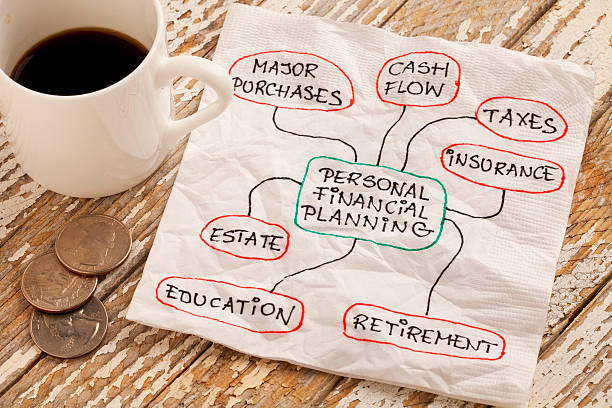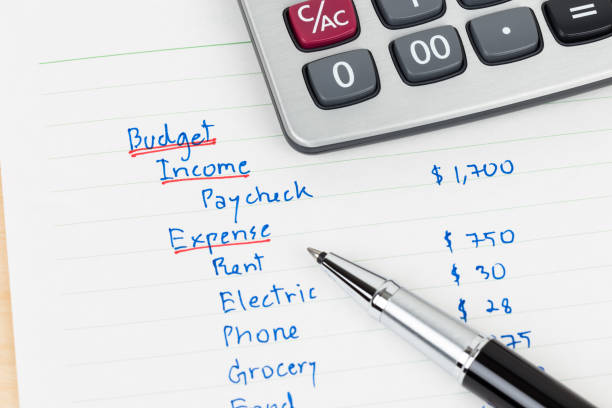What is Personal Finance? Strategy Used to Maintain It
What is Personal Finance?
In simple terms, Personal finance means managing, saving, budgeting and investing your own money. Or in a broader sense it refers to the management of an individual’s financial resources. It encompasses activities like budgeting, tax, saving, investing, mortgages, retirement plans, and estate planning for the future.
Individual personal finance management differs from person to person, most of them using their own way to save or diversify their income. If you are a salaried employee your strategy is unique compared to own business men or other sector peoples like daily labors.
Individual goals and desires are unique and make a plan to fulfill those needs within your financial constraints, so, therefore you should be financial savvy. Overall personal finance will help you to bifurcate between good and bad advice to make better financial decisions.
What are the Strategies used for maintaining a good Personal finances?
1. Pay for yourself first
It is very important to set aside a tiny amount of money for your personal expenses or yourself. Reserve amount for some of the unexpected events like accidents, medical emergencies, and car or vehicle repairs and pay day to day expenses. If you ask any financial experts or advisories they will mostly recommend keeping 15% of monthly incomes to pay for yourself.
2. Devise a Budget
Budget is you can also do it for your own purposes to maintain healthy personal finances. In Order to create a budget, individuals can track their income and expenses, identify spending habits, and make necessary adjustments to achieve financial goals. Usually you can apply a 50/30/20 budgeting method. Most recommended and famous method to tackle your expenses. It includes;
- 50% of your income goes to your essential items like living expenses, rent, utilities, groceries, and transportation.
- 30% income allocated to discretionary expenses like dining out, shopping’s and giving some kind of donations or charities.
- 20% income allotted to future purposes like pay off your debts and retirement savings and emergencies (Medical emergencies).
3. Focus more on saving
It is very good earning a decent amount of income and making a budget on that, but it is only fulfilled until you are making a perfect savings. Savings either you can do in gold or Banks. But if you are a futuristic person looking for more safe savings you can get National saving certificates, Recurring deposits, EPF and Fixed deposits. Savings will help you to lead a peaceful and potential life after your retirements and fulfill your dreams of buying a house in order to build financial stability and security.
4. Invest wisely
Diversifying your income is not just escaping from the financial crisis but also helpful to get different sources of income. Either you can invest in mutual funds, gold, FD, equity, real estate or bonds will always be a better idea to increase your income sources. Investing allows individuals to grow their wealth over time and combat the effects of inflation. Not just fulfill to reach your long-term financial goals, such as funding their children’s education or saving for retirement.
5. Planning for the future
A solid personal finance plan is always accomplished when you are well planned for your future. To some extent it includes setting financial goals such as buying a home or property, starting a business, or retiring early. You also should look into insurance and find ways to reduce your premium like auto, home, life, disability and LTC. You may feel retirement is too far but it arrives very soon, so some experts suggest that most people require 80% of their current salary during retirement. Planning for these goals early on can ensure individuals are on track to achieve them.
6. Reduce debt burdens
Most of our payments and incomes go to repaying the interest or debt. According to experts, most of the value of income in our lifetime goes to repay debt. So, don’t spend more than you earn to keep debt from getting out of hand. But sometimes getting borrowed from time to time is helpful. Always try to keep reducing your debt burden as soon as possible. Take a loan only if it is necessary and make a wise investment and focus more on future planning.
7. Maintain a health credit scores
What is a credit score? Credit score is a numerical measurement of your credit usually starts from 300 to 850 that represents consumer’s creditworthiness. It is the primary thing to maintain and build by credit cards. If you want to obtain a lease, mortgages, or other type of financing then you should have a healthy credit score. Usually we measure our credit scores by the FICO scores. It includes;
- 800-850 is exceptional score
- 740-799 very good
- 670-739 good
- 580-669 Fair
- 579 or below is poor
Overall, personal finance is inevitable for all persons whether you are a salaried person or business man or daily labour. It empowers every person to take control of their financial well-being and freedom, achieve financial security and stability, and work towards their long-term financial goals. If you are not following a well maintained personal finance, you probably will not going to lead a healthy financial life.







